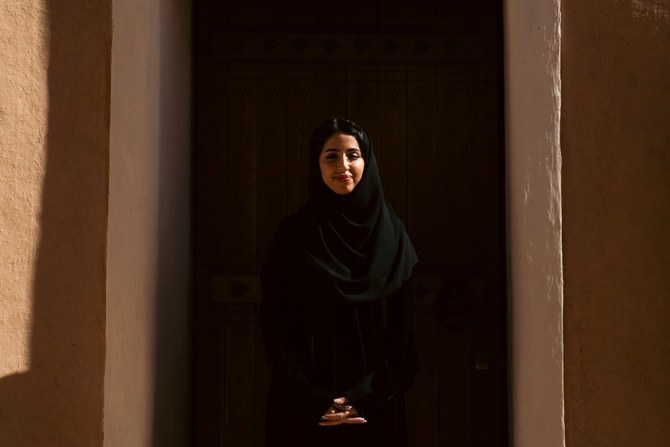RIYADH: Saudis across the Kingdom will celebrate their lineage, heritage and national identity on Feb. 22 at events marking the third annual Founding Day, which commemorates the establishment of the First Saudi State by Imam Mohammed bin Saud almost 300 years ago.
“We’re celebrating rich and deep history … as Saudis, we celebrate the long journey of a great nation,” Zean Alshirian, senior officer for cultural and historical validation at Diriyah Gate Development Authority, told Arab News.
Founding Day, which was established as a national holiday by royal decree in 2022, is a celebration of Saudi identity, she said, a day that connects the nation’s people to their roots and heritage. As such, it honors the first step on a path that led to the modern-day Kingdom, she added.
The First Saudi State, or the Emirate of Diriyah, was founded in 1727 by Imam Mohammed. Known for his bravery, leadership skills and generosity, he brought security and stability to Diriyah and under his leadership it flourished, becoming a hub for culture, commerce and education.
“The first treasury of the Kingdom of Saudi Arabia was here in Diriyah, in At-Turaif, (which is now) a UNESCO World Heritage Site,” said Alshirian. “This treasury was built to allocate (resources to meet) the needs of the people here. And that speaks to the peak of where the First Saudi State actually reached.”
The First Saudi State, its development, which was advanced for the time, and its cultural, economic and humanitarian initiatives helped to shape embryonic beginnings of what would become the modern Kingdom we know today. Founding Day therefore gives Saudis a chance to remember the origins of their nation, its people and their traditions, and to celebrate this connection between past and present.
“We, as the people of the Kingdom, are ever so connected to our predecessors, we’re ever so connected to our ancestry,” Alshirian said. “So beginning to understand that our traditions, our cultures, date back to 300, 400 years ago, we can then understand how rich they are.”
To fully understand the groundbreaking nature of Imam Mohammed’s historic achievements, one must be aware of the broader history of the Arabian Peninsula, Alshirian said. Prior to the founding of the First Saudi State, city-states were common but nation-states were not.
“When he (Imam Mohammed) founded the First Saudi State … this was a huge step forward. This was a momentous moment in history, something that signifies his character,” Alshirian said.
He founded the state at the heart of of the Arabian peninsula, in Al-Yamamah region, and by doing so enhanced local security, unity, education and culture, she added.
“So this huge step forward is something visionary from Imam Mohammed bin Saud,” Alshirian said.
The cultural history of the First Saudi State is revealed by the manuscripts of the time.
“We can understand it through their handwriting and the colors that they use. They were connected to their environment,” Alshirian said.
Some people might be confused about the difference between Saudi Arabia’s National Day and its Founding Day, which mark two pivotal, but distinct, events in the history of the Kingdom.
“National Day is Sept. 23, when we celebrate the unification of the (modern day) Kingdom of Saudi Arabia,” Alshirian said.
“But when we talk about Founding Day, we are talking about the founding of the First Saudi State about 300 years ago.”
If we consider the timeline of the evolution of the nation, the establishment of the Kingdom of Saudi Arabia in 1932 was in a sense the final step on the path, while the founding of the First Saudi State in 1727 was the start.
“When we understand that, we understand the domino effect, the butterfly effect of how this great journey started. So we’re celebrating the beginning of a journey, in a sense,” Alshirian said.
“But the after is as important as the first, and vice versa.”
Alshirian added that it is her hope that Founding Day helps the Saudi people to better understand and celebrate their national roots and history.
















